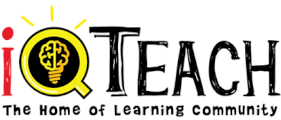Everything about the world these days is fast-paced. Every student is going the limit with their studies to ensure that they get a good kick start for their career. This is due to the competitive surrounding that we are in. We are raised with the mindset “to secure a good job, it requires outstanding qualifications”. This is why most of the students are striving to be the best, pursuing their studies to the highest level possible in order to have a decent profession. Students spend at least 17-18 years in primary and secondary school, depending on what country they are in as different countries have different education systems. Thereafter, they would have to resume with colleges and universities to pursue their Bachelor and Masters degree or even Doctorate which could take another 5-8 years.
Some would choose to do it continuously, some would rather take it slow. There is no right or wrong way in pursuing education. Well, it all comes down to one word, choice. Nothing is wrong with doing it continuously nor going at a slower pace. It all depends on that person’s capacity. Everybody has their own ‘capacity gauge’. Sometimes, studying without cutting ourselves some slack can be toxic. It is because we are suppressing our need to revitalize and at some point, it might just burst and affect us in a negative way. That is why some students choose to replenish themselves with a gap year to find out who or what they truly want to be or do. A gap year is when a student is taking the whole year off before pursuing colleges or universities after high school or before entering graduate school after their undergraduate studies. What do people usually do during a gap year and how is it benefiting? Here are some examples:
1. Volunteering
Volunteering can be done locally or internationally. There are a lot of places or causes that you can embark on. Participating in programs to help the underprivileged overseas, teaching children overseas or locally especially in the rural areas, engaging with cancer patients. These are just a few examples to name. There are much more that can be undertaken. All you have to do is look up online on volunteering programs available worldwide. Some programs even provide transportation and lodging facilities for their volunteers. Not only can you help the community and make the world a better place, it can help boost your resume as well whereby it shows that you care about helping the people around you.
2. Working or Interning
Some go for job hunting or internship right after completing high school or undergraduate studies. This is to gain exposure to the reality of the work life. Furthermore, to earn some money for their tuition fee before resuming to the next phase. Tuition fees are indeed pricey. It does not have to be a fancy job with a big office. It can range from working part time at a restaurant bussing tables or helping the superiors with paperwork. Either way, every experience is important and they can give you the confidence you need when you are starting your career in the future.
3. Traveling or Backpacking
A number of people love to travel or backpack during their gap year. They do this to experience the diversity of culture in other countries. You can meet new people of different backgrounds and learn about their culture. You might also learn their language. It will give you new perspectives as you are going places. It is undeniable that traveling can be costly. Transportation, accommodation, food, etc, they all involve money. So it may seem as if it is out of reach. However, there are also some gap year programs that covers travel expenses in exchange for volunteering as mentioned before. You can also find part-time jobs which enable you to do long-distance work by using just your laptop. Thus, you can complete your work from wherever you are without having to be physically present at any particular time or place and earning some money to cover you travel expenses. Backpacking, on the other hand, is cheaper than traveling. Backpackers push themselves to the limit to experience the culture and the way of life that is totally different from their usual one. They would find the cheapest means to go places and try to blend in with the locals to have a more extensive experience. It does not matter which way you choose to journey. What matters the most is the lessons that you learn along the way. They can help you during your transition to the next phase after the gap year.
4. Spending Time With Family
Some are using their gap year to spend time with their family. They want to be able to spend ample time with their loved ones before they get too busy when they leave for college or grad school. This is the chance for them to bond and gets to know each other better. Families may live under the same roof, but sometimes there are just things that we might not know about each other. That is why some choose to do this in order to appreciate and get a better understanding of their family members. You can volunteer together, participate in charity runs and more. There are numerous activities that you can venture together.
5. Learning New Skills
Some also make use of their gap year to obtain a new set of skills. This is the time they explore the vast pool of knowledge there is to learn in the world. A new language, a new way to approach mathematical problems, the best way to style yourself, writing songs, etc. There are approximately 365 days in a year. That is more than enough days to master a skill or two. So why not dive into that pool and gain some skills which might come in handy for the future.



No Comments